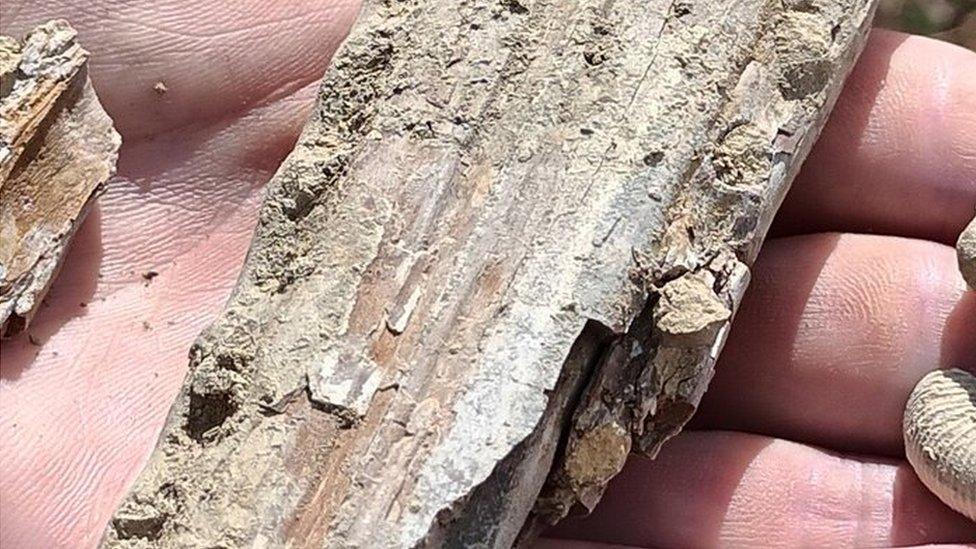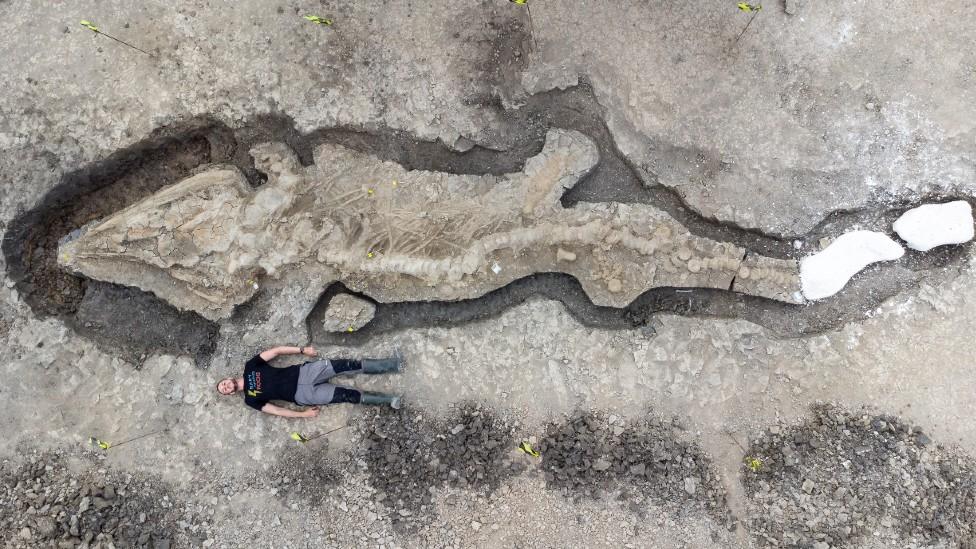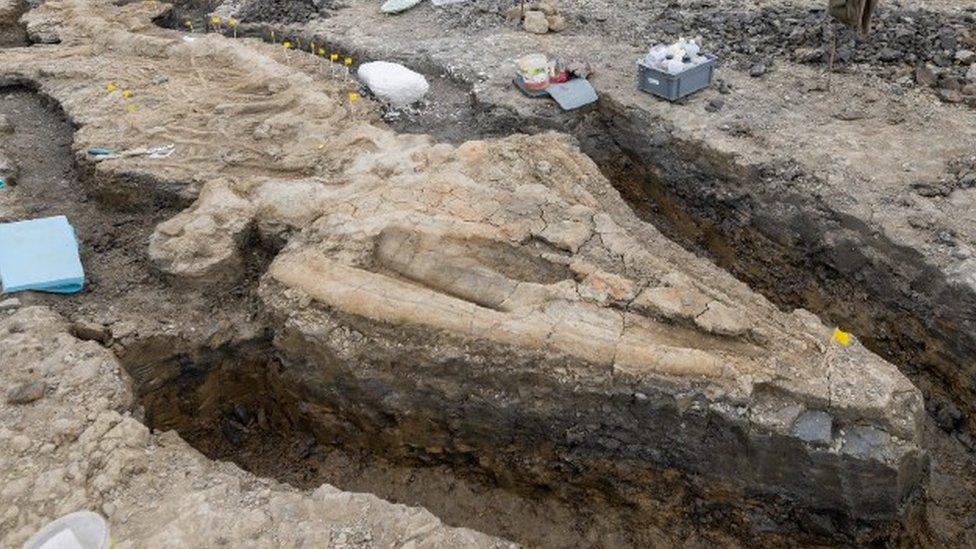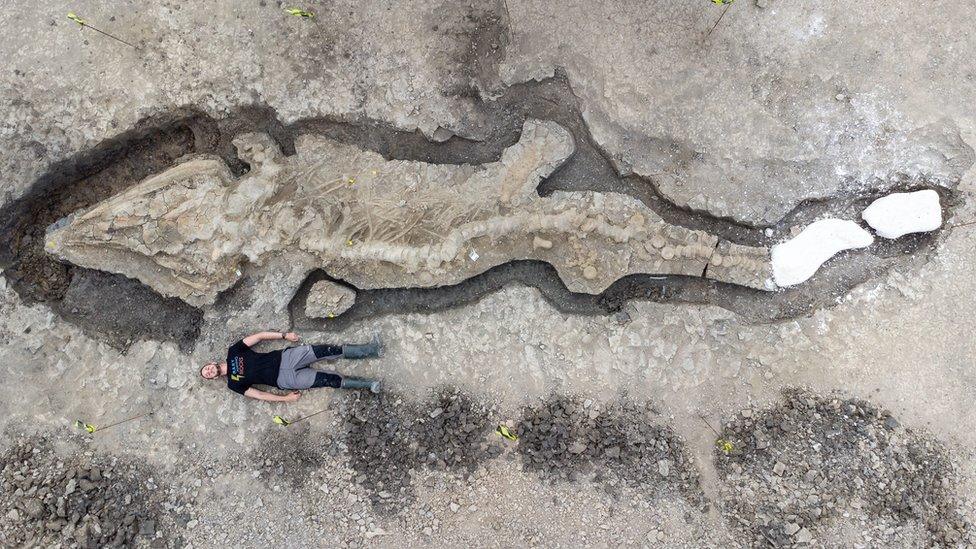Jurassic crocodile jaw discovered at Rutland Water Nature Reserve
- Published

The fossilised jaw of the pre-historic crocodile was found in August
A pre-historic fossilised crocodile snout has been unearthed near Rutland Water.
Experts discovered the remains, which they believe date back to the Jurassic Period, while excavating a dried lagoon in Rutland in August.
Further tests are now planned to find out more about the ancient reptile.
The find was made just a short distance from where a 180-million-year-old fossil, dubbed the Rutland Sea Dragon, was discovered in February 2021.
The recovery of the 33ft (10m) ichthyosaur, the biggest and most complete fossil ever discovered in the UK, was described as the greatest find in British paleontological history.
'Very exciting find'
The latest discovery is of a much smaller animal but the Leicestershire and Rutland Wildlife Trust, which manages the Rutland Water Nature Reserve, said it was still excited by the find.
Reserve manager Joe Davis said: "What we've established is that millions of years ago this area was very rich in wildlife and the discovery of the crocodile fossil indicates that it might have been a nesting area for them.
"It's quite a thing to try to picture the scene 180 million years ago with all these amazing creatures.
"You can see from the snout where the teeth used to be and we think the whole creature was a couple of metres long and probably 12-and-a-half years old.
"So while it's not as large as the ichthyosaur it's still a very exciting find."

The Rutland Sea Dragon was discovered in February 2021
Mr Davis added: "We were taking advantage of the low water levels to look in places we don't always have access to.
"We went back to the ichthyosaur site and we actually found more of the original fossil.
"A part of its flipper has been found as well as some vertebrae - and the Jurassic crocodile snout."
He revealed during the Jurassic period - some 200 million to 145 million years ago - the area that is now the nature reserve was a saltwater estuary located much further south than it currently is.
He said it would have had a much warmer climate suited to reptiles like crocodiles.
It is hoped the crocodile find will be displayed in the future alongside the sea dragon remains somewhere in Rutland.
A grant of £40,000 of lottery and charity cash has been secured by Rutland County Council to display the dragon once it has been fully examined and conserved - a process expected to take at least two more years.
That display is also expected to include the remains of a Roman mosaic of the legendary Siege of Troy which was found in Rutland in 2020.

Follow BBC East Midlands on Facebook, external, on Twitter, external, or on Instagram, external. Send your story ideas to eastmidsnews@bbc.co.uk, external.
- Published16 January 2022

- Published10 January 2022
